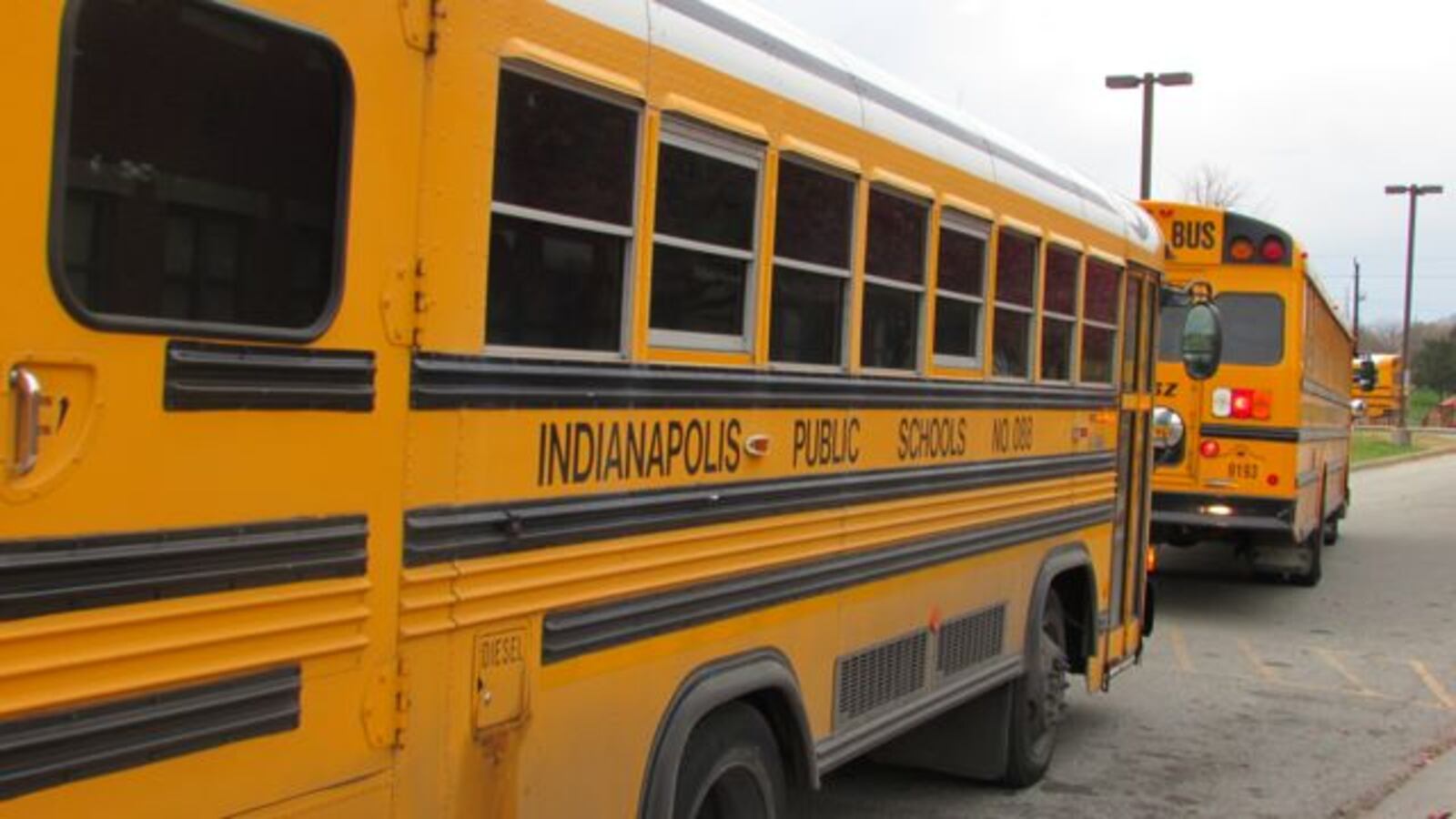Indianapolis Public Schools could lose as much as $18 million in state aid over the next two years if changes to the state’s school funding formula approved by the Indiana House last month make it into law.
Without changes to the budget bill, those losses could be much more.
As it stands today, an apparent mistake in calculating school district poverty rates could set IPS back another $14 million if it’s not fixed by the Senate this month.
Despite all that uncertainty, IPS on Monday proposed an operating budget that assumes state revenue will be basically unchanged from last year.
Why?
Well, district officials say, there wasn’t much else they could do for now.
State law requires school districts to publish and advertise their budget proposals before submitting them to the state by an April 1 deadline.
But at this point, IPS can only guess how much state aid it will receive next year.
The district simply cannot make a budget based on a proposed state budget that is likely to change, Superintendent Lewis Ferebee said. The best it can do is plan as if everything will remain the same and be prepared to adjust as the budget takes shape.
“It would be an overreaction or a knee-jerk to start the plan based on what we’ve learned thus far,” Ferebee said.
IPS’s proposed $232.7 million general fund budget for 2015-16 instead assumes state aid will continue to drop by $91.40 per student as part of a seven-year plan to even out state support between wealthy and poor districts. Districts like IPS, with large numbers of poor children, can receive up to $3,000 per student more than the school districts with the least poor children.
Republicans, who control the legislature, have argued that gap is too wide and should be narrowed. IPS and other poor district say they need every extra dollar to help poor children overcome barriers to learning that many of them face.
The school board will vote on the budget next week, knowing it is simply a best guess.
Board member Sam Odle said the board must aid Ferebee in making the district’s case to the legislature.
“The rest of us have to make sure IPS is represented at the Statehouse and our lawmakers understand how important it is to keep IPS’s funding up so we can create the right educational experience for our students,” he said.
One further complication for IPS: the district is shifting from a calendar year budget to a fiscal year budget that runs July 1 until June 30 of the following year. The goal is to better match the budget process to the rhythms of the school year.
“This first transition year is of course awkward,” Ferebee said. “We believe this will allow us to be good stewards and live within our means and have better allocations to schools. We know it’s going to be a little murky at first.”
Here’s what the district envisions that next school year’s general fund budget for day-to-day expenses will include:
- No surplus. Income is expected to match expenses. IPS had surpluses of $4 million and $8 million the past two years.
- An assumption that the district’s enrollment will remain basically steady. The district is not planning for enrollment to grow as it did in 2011-12 and 2012-13, but also does not expect it to fall as it did last year.
- No plan for a significant raise for employees. The budget includes only a tiny $114,000 bump to about $164.6 million allocated for salaries. The district expects to spend $1.4 million more than last year on benefits.
Board member Gayle Cosby said she was not thrilled to see a meager increase in the district’s proposed budget for salaries. Board members and Ferebee have repeatedly said they’d like to give raises next year to IPS teachers.
But Ferebee said the plan was difficult to put together because of the uncertainty of budget talks at the Statehouse. The Senate has just begun their debate about the issue, and will later have to confer again with the House before coming to an agreement.
“You do it knowing there’s going to be a lot of back and forth at the Statehouse and you wait patiently until you get the final word,” Ferebee said. “We’ll be a part of those conversations and we look forward to fruitful conversation about how IPS can be best supported.”
It’s too early to know what the district will be able to do when it comes to raises, Ferebee said. Bargaining with the teachers union will begin over the summer.
“What we worry about is that what’s being proposed may compromise our ability to move forward with some of our strategic priorities we’ve discussed and may comprise our ability to be as competitive as we want to be with teacher compensation,” Ferebee said.
The school board is scheduled to vote to adopt the budget on March 19.


